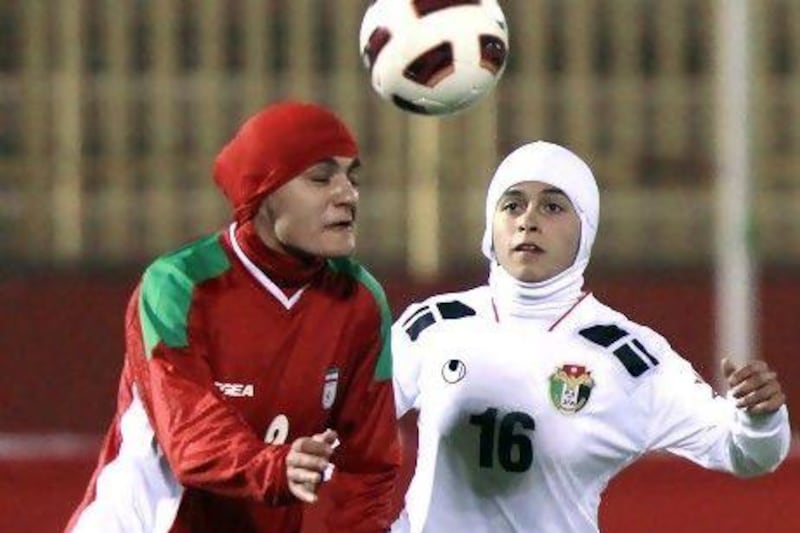AMMAN // Prince Ali of Jordan, the Fifa vice-president for Asia who waged a campaign against a ban on the hijab, said the traditional Islamic headscarf should not prevent Muslim women from taking part in Olympics football competitions.
"I think that the hijab will not hinder the participation of Muslim women in the Olympic Games," Ali, half-brother of King Abdullah II, said.
"The games will be a great opportunity for Arab and Muslim women to show their capabilities and prove themselves."
Fifa, world football's governing body, banned players from wearing the Islamic headscarf in 2007, claiming it is unsafe, but the International Football Association Board (IFAB) allowed women players last month to wear the hijab in games.
"Safety is important of course, but to date, there have been no reported injuries due the headscarf on the pitch," the prince said.
"We all have a responsibility to ensure that all women who wear a headscarf are able to participate in the game they love.
"Football is a sport for all."
IFAB will meet in July to ratify its decision to lift the ban on the hijab.
"We held a meeting in Fifa with designers of a safe headscarf as well as independent technical testing institutes in order to discuss the new designs," Ali said.
"The decision now lies with the medical committee ... which will give a recommendation to Fifa before the July meeting."
The ban has become a pressing issue in the region, with the Iranian national women's team forced to withdraw from the West Asia Olympic qualifiers last year and three players dropping out of the Jordanian side due to the ban.
Backing Prince Ali's efforts, the United Nations has urged Fifa to permit the hijab, saying players have "the right to wear a safe, Velcro-opening headscarf in Fifa-regulated matches and competitions".
"I always support women. Personally, I was happy that my sister [Princess Haya] competed at the 2000 Sydney Olympic Games in show jumping," said the son of Jordan's late King Hussein and the late Queen Alia.
Saudi Arabia, Qatar and Brunei are the only three countries never to have sent women athletes to the Olympics.
Doha, which is hoping to stage the 2020 Games, has said it will send three women to the London Olympics this summer.
Unseating South Korean Chung Mong-Joo as the Fifa vice-president in January 2011, Ali became the youngest member of the body's executive committee at the age of 35, after rallying Arab support behind him.
He has no plans to compete for the top job at Fifa or the Asian Football Confederation (AFC).
"I want to focus on my current job and work harder to enhance Asian football," said Prince Ali, who also has been president of his domestic football federation for more than a decade and holds the same role at the head of the increasingly-influential West Asian Football Federation.
Last year, he said he planned to introduce "new work ethics" in Asia. "What is important is to have a leader with a football programme that will advance and develop football in Asia," he said.
Follow us
[ @SprtNationalUAE ]





